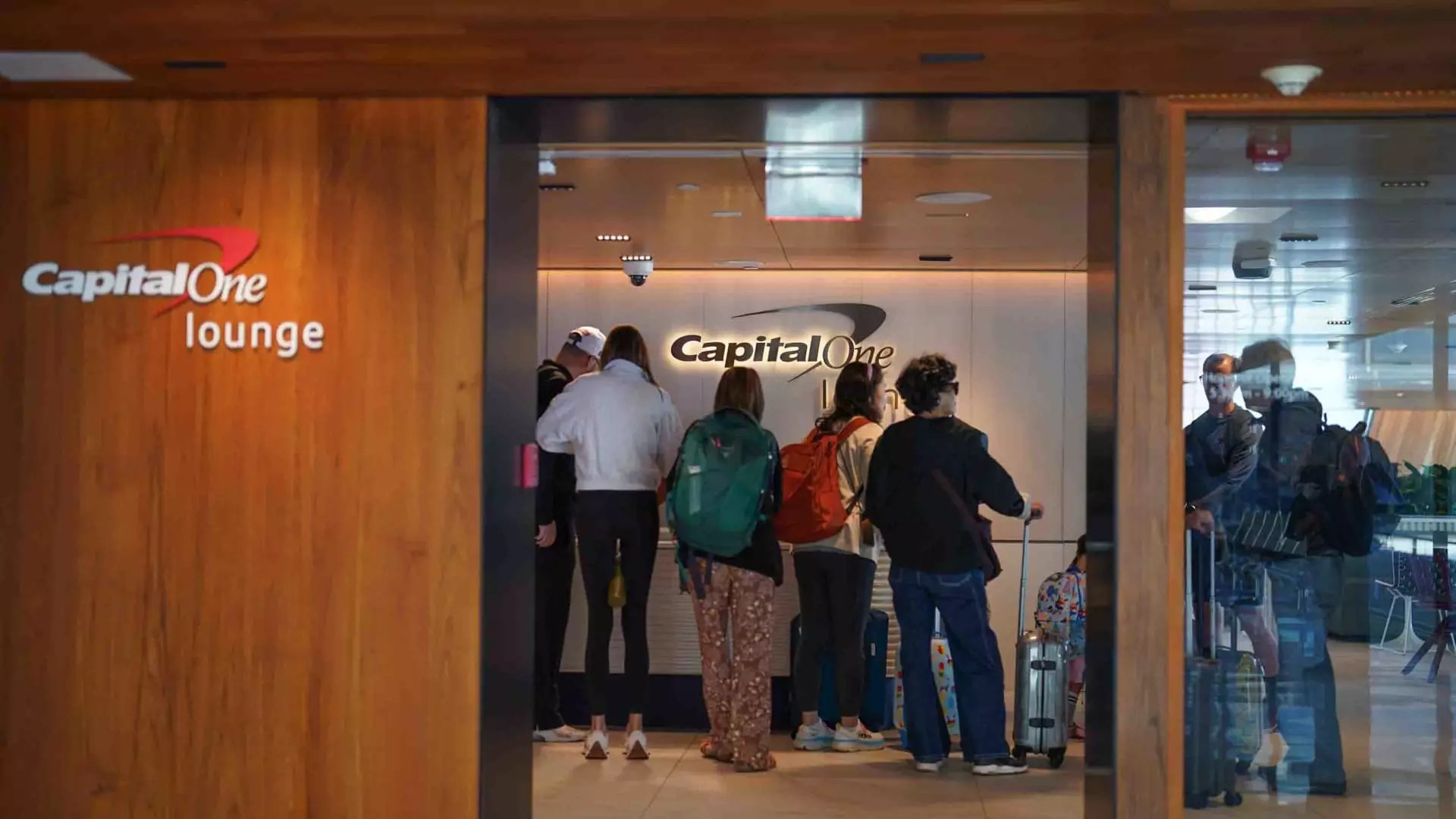In an era where air travel has become more accessible to the average consumer, a troubling trend is emerging at airports: the cost of comfort is skyrocketing. With the price of airline tickets becoming more budget-friendly, especially for domestic flights, families are now finding themselves priced out of luxury amenities like airport lounges. In an alarming move, Capital One has recently announced that starting February 1st, their Venture X and Venture X Business cardholders will face substantial restrictions on guest access to their lounges. For those who used to enjoy the privilege of bringing friends and family without additional fees, the new policy pits convenience against cost, putting access to these coveted spaces further out of reach for the average traveler.
This shift reflects a larger issue in the marketplace; the democratization of travel hasn’t translated into increased access to premium experiences. Allowing lounge access without limitations was a major draw for rewards cards, providing a sense of exclusivity and comfort during the travel experience. However, as lounges have become overcrowded, the response by Capital One signals a retreat into elitism, where only those with the deepest pockets or the most frequent flyer miles can truly enjoy the benefits that were once marketed as universally available perks.
The Capital One Dilemma: Cost vs. Quality
The latest restrictions come with eye-watering fees: a staggering $125 per additional cardholder and $45 per adult guest is a significant financial burden for families wanting to relax before their flights. Moreover, with a requirement for primary cardholders to spend a whopping $75,000 annually to gain the benefits of complimentary guest access, the message is clear: the average consumer’s interest in comfortable travel experiences is increasingly losing out to the card issuers’ desire to cater to a wealthier clientele.
Capital One’s statement emphasizes their commitment to maintaining a “great airport lounge experience,” but this contradicts the very essence of what customer service should represent—valuing loyalty over monetary gain. The exclusivity, which once set them apart as a “challenger brand,” is now taking precedence over the experiences of regular customers.
On top of that, the idea that guests should pay per visit trivializes the entire concept of traveling as a shared experience. Families traveling together for important life moments should not have to face exorbitant fees simply to relax together at the airport. It dilutes the shared joy of journey, forcing individuals to weigh the costs against their need for comfort.
The Industry-Wide Trend of Class Warfare
This isn’t just a Capital One issue; rather, it reflects the trends across the industry as airlines try to wrestle with increasing customer demand amid overcrowded facilities. Delta Air Lines, American Airlines, and United Airlines are also tightening lounge access while expanding and upgrading their facilities. These measures, while purporting to enhance customer experience, often lead to disenfranchisement of those who don’t possess high-tier memberships or premium seat tickets.
The recent moves by card companies and airlines point towards an unsettling reality: as air travel becomes more affordable for millions, the luxurious experiences often touted as benefits are being limited to an ever-narrowing elite. This form of class warfare, where the privileged are allowed to enjoy comfort at a premium while the masses are pushed aside, is a grim harbinger of future travel experiences. Capital One, once perceived as the underdog in the credit card game, has shifted into this established narrative of exclusivity, reflecting a broader societal shift that privileges wealth over access.
While the industry may seek to control overcrowded lounges and cater only to their most affluent customers, they must reckon with the very real implications of disenfranchising an ever-growing base of everyday travelers. The future of travel should not be limited to the privileged few; rather, it should be inclusive, fostering experiences that can be shared by all, regardless of their financial capacity. With this trajectory, it appears that luxury will remain out of reach for many, all in the name of maintaining an “exclusive experience.” We’re left to ponder the true cost of relaxation in an increasingly compartmentalized aviation landscape.


Leave a Reply